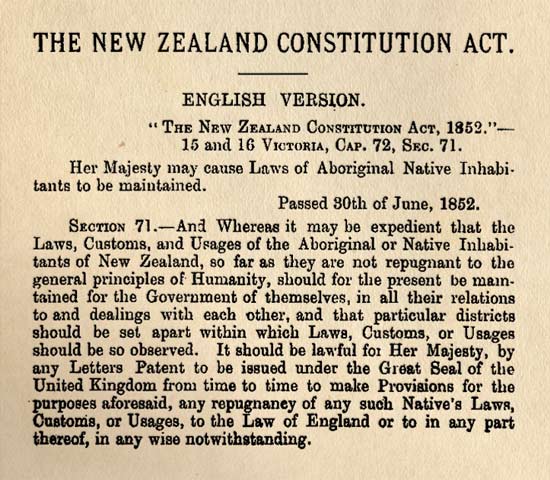
'An Act to grant a representative constitution to the colony of New Zealand' was passed by the British Parliament in 1852. The act set up six provinces to be governed by elected councils. Section 7 stated that eligible voters were males aged 21 or over who owned freehold land worth at least £50, or leased land for £10 or more a year. This act therefore did not exclude Māori males from voting, and some Māori voted in the first elections held after it was passed. However, Māori traditionally owned land on a tribal basis, and only a small minority owned or leased freehold land in the 1850s. Therefore, non-Māori voters far outnumbered Māori.
This extract from the act was published in several successive issues of the Taranaki Herald from 8 December 1852. Section 71 was never implemented.
Using this item
New Zealand Electronic Text Collection
Reference:
Sydney Taiwhanga, Proposals of Mr. Sydney David Taiwhanga, M.H.R., for the colonization and settlement of Maori lands. Wellington: Edwards & Co. 1888
This item has been provided for private study purposes (such as school projects, family and local history research) and any published reproduction (print or electronic) may infringe copyright law. It is the responsibility of the user of any material to obtain clearance from the copyright holder. Some material from NZETC is made available under NZ Creative Commons Attribution - Share Alike License (BY-SA)







Add new comment